Register for free and continue reading
Join our growing army of changemakers and get unlimited access to our premium content
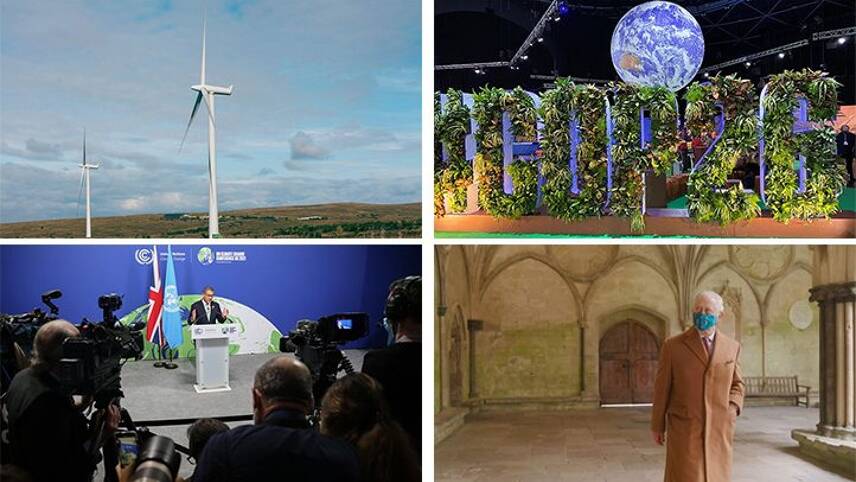
As we approach 2022
We are frequently told that the pace of change in regards to environmental discussions and actions has never been so rapid – and that it will only continue to accelerate in the coming years. At the same time, we know that talk has not yet turned into action at the scale and pace needed to stop the twin climate and nature crises.
2021 proved, once again, that both of these sentiments still ring true. The build-up to COP26 and the two-week summit itself have meant that, here in the UK, environmental sustainability has never been more prominent in the psyche of the general public. There have been major policy announcements, enhanced media coverage, new business coalitions and, while we know these still do not add up to what science demands, the direction of travel is clear.
After such a hectic and landmark year, many of us will be keen to wind down, take stock of the past year and set out what we want to focus on for 2022.
And, with this in mind, edie has rounded up all of the biggest sustainability stories from the policy, business and public spheres during 2021. We are UK-based, so there is a focus on stories from the UK.
JANUARY: Prince Charles launches Terra Carta
Less than two weeks into 2021, the Prince of Wales launched a new business commitment – the Terra Carta – in a bid to “accelerate and mainstream sustainability”. Developed after the prince’s call for a “marshall-like plan for nature, people and planet” at Climate Week NYC in September 2020, the charter lays out shared goals on issues including climate, ecosystem and community protection. It has garnered the support of dozens of corporations.
Separately, Unilever outlined a new social sustainability strategy, with targets including an ambition to spend €2bn annually with suppliers consisting of under-represented groups by 2025.
Elsewhere, the UN High-Level Climate Champions and COP26 President Alok Sharma launched the ‘Race to Zero Breakthroughs’ initiative, in a bid to create tipping points for hard-to-abate and high-emitting sectors in the net-zero transition.
Away from the corporate space, the UK Government confirmed the delay of the Environment Bill amid the Covid-19 lockdown. It would not return to Parliament until late May. Across the Atlantic, Joe Biden signed a string of executive orders around nature conservation and minimising emissions from the energy sector.
FEBRUARY: edie hosts virtual Sustainability Leaders Forum and Awards
February 2021 saw edie’s long-standing Sustainability Leaders forum and Sustainability Leaders Awards taking place in an all-virtual setting for the first time, with the UK still in lockdown.
Inspirational speakers at the Forum included Paris Agreement architect Tom Rivett-Carnac, now co-founder of Global Optimism, and the UK Government’s Net-Zero Business Champion, Andrew Griffith MP.
The Awards, meanwhile, recognized excellence across the spectrum of sustainable business, crowning winners in 24 categories. The Lifetime Achievement Award went to Dame Polly Courtice, the founder and director of the Cambridge Institute of Sustainability Leadership (CISL). Click here for a full list of winners.
Beyond edie’s four walls, the big news in the UK was the publication of the Dasgupta Review – a landmark paper assessing how businesses and policymakers can include and account for nature as part of economic decision. The paper has been described as being as influential as the Stern review on climate change.
Elsewhere, the Treasury continued to resist calls for net-zero stress tests for major projects and Cumbria County Council chose to put plans for the UK’s first deep coal mine in more than 30 years on hold.
MARCH: UK Budget prompts mixed reactions across the green economy
The UK’s 2020 Budget, originally due to be delivered in Autumn 2020, was pushed back to this March due to the pandemic. There were several announcements that will directly affect the UK’s net-zero transition and delivery of broader environmental ambitions. On the one hand, Chancellor Rishi Sunak announced plans to issue £15bn of green sovereign bonds this financial year; allocate £1bn of funding to net-zero innovations and create eight freeport regions where green business investment processes will be streamlined.
On the other hand, fuel duty was frozen for a twelfth consecutive year, while the Green Homes Grant and National Nature service went unmentioned. There was also anger over proposed cuts to Air Passenger Duty, and the absence of new tax incentives for renewable energy and the circular economy.
Here at edie, we hosted a special Circular Economy Week editorial campaign. This included exclusive interviews, podcasts, reports, webinars and in-depth feature articles – all dedicated to embracing closed-loop models.
APRIL: Europe finally agrees 2030 climate target
European Union negotiators reached a deal on the European Climate Law after 14 hours of talks in April, agreeing on a new 2030 ambition for the bloc to reduce emissions by at least 55% by 2030. There was also an agreement to develop a 2040 target and sector-specific roadmaps for any industries requesting them.
This marked a major milestone following the EU’s commitment to net-zero by 2050. It also came shortly after a report revealing how incompatible EU member states’ plans for gas infrastructure expansions are with this 2050 goal.
In the private sector, 52 businesses including Colgate-Palmolive, PepsiCo and Sainsbury’s signed The Climate Pledge, co-organised by Amazon and Global Optimism. The Pledge is headlined by a promise to reach net-zero by 2040 at the latest. Separately, The Food and Drink Federation (FDF), which represents more than 300 companies, unveiled an ambition on behalf of the sector to reach net-zero emissions by 2040.
MAY: IEA calls for an immediate halt to new fossil fuel exploration
Back in 2019, the International Energy Agency (IEA) was accused of failing to show how the world could align with the Paris Agreement.
In a major step-change, following adjustments of key methodologies for the World Energy Outlook, May saw the Agency publishing its first report plotting the changes needed in the power, energy and heat sectors if the world is to have the best chance of limiting temperature increases to 1.5C.
The roadmap set out more than 400 milestones on the global journey to net-zero and was intended to inform negotiations at COP26. Milestones include stopping plans for future fossil fuel supply projects – especially more aggressive projects such as tar sands and arctic drilling – immediately. Also floated is the need for a global ban on new petrol and diesel car sales by 2035.
In the private sector, there were several stories around climate-focused shareholder votes during AGMs. HSBC passed a management resolution requiring an end to coal financing by 2040 and shareholder motions filed by climate activists have passed at US fossil fuel giants ExxonMobil and Chevron.
Here at edie, we hosted our Engagement Week 2021 editorial campaign to empowers sustainability professionals to achieve excellence when it comes to reporting and communications. We also launched our Countdown to COP26 Festival as the month came to a close.
JUNE: A mixed picture for climate at Carbis Bay’s G7 summit
Ahead of COP26, tackling the climate crisis was a key agenda item for world leaders and policymakers heading to Carbis Bay in Cornwall for the 2021 G7 Summit.
Before the Summit began, world leaders agreed on a joint commitment to ensure their power sectors reach net-zero in the 2030s, setting up for the economy-wide transition by 2050. There was also a new agreement to mandate climate reporting in line with the recommendations of the global Taskforce on Climate-related Financial Disclosures (TCFD). At the Summit, the nations formally agreed to a shared Nature Compact and reiterated the commitment for wealthy nations to provide $100bn in climate finance to developing countries annually. However, the final communique was not as strong on climate as many had hoped.
Businesses and investors had been placing particular pressure on world leaders on sustainability, in the build-up to the summit and during the actual programme.
Further north, the UK’s National Infrastructure Bank (NIB) launched in Leeds. The Treasury reiterated its promise for the NIB to funnel billions of pounds into the UK’s net-zero transition.
In the global sustainability space, the big story was the official launch of the Taskforce on Nature-related Financial Disclosures (TNFD). The Taskforce is aiming to corporate reporting and financial spending with science to alleviate nature-related risks.
JULY: Transport Decarbonisation Plan published
Ahead of Parliament’s summer recess in the UK, the long-awaited Transport Decarbonization Plan was published after delays of more than six months. There were fresh commitments to stop the sale of new petrol and diesel HGVs from 2040, but the aviation approach underwhelmed many, with a 2050 deadline and a reliance on alternative fuels and offsetting.
The National Food Strategy was also published. This is a white paper rather than an official policy which, at the time of writing, Ministers are yet to formally respond to. Trade bodies, farmers and green groups continue to press for clarity on new measures on public health, nutrition, biodiversity and emissions.
Meanwhile, in mainland Europe, the European Comission tabled a package of new policies aimed at delivering the promised 55% reduction in emissions by 2030. Called the ‘Fit for 55’ package, it included 13 legislative proposals in the first instance.
In green business, the Aldersgate Group named former Prime Minister Theresa May as its new chair and the Science-Based Targets initiative (SBTi) confirmed that it is updating its strategic approach to increase the minimum ambition for corporate climate action from “well below 2C” to 1.5C.
AUGUST: In-person COP15 negotiations delayed (again)
August is usually a quieter month for sustainability stories, with many professionals and policymakers taking time off to enjoy the summer. There were, nonetheless, some major stories to cover in August for the edie team.
The biggest global story was the announcement of further delays to the in-person portion of the UN’s 15th Convention on Biological Diversity. Originally due to take place in 2020 and subsequently postponed to October 2021, the conference in Kunming, China, was once again shelved. The first half has now taken place online, with the second half due to take place in-person in Spring 2022, in the hopes of nations agreeing a new framework to halt and reverse nature loss.
On a UK-specific note, the Hydrogen Strategy was published, outlining plans to unlock £4bn of investment in blue and green generation, storage and usage this decade. The Government also launched a consultation on a potential upcoming ban on plastic items like plates, cutlery and polystyrene cups.
SEPTEMBER: Climate Week NYC sets the stage for COP26
Following the summer break, the green economy’s voices grew louder as we entered September and the final stretch ahead of COP26.
The biggest event of the month was, as it usually is, Climate Week NYC, which was able to go ahead in a hybrid format. Highlights included a £12bn commitment to Scottish offshore wind from Orsted and a commitment from mobility platforms, including Uber and Arrival, to net-zero by 2035.
Across the pond, the UK Government launched its first green gilt and it was reported that investors placed a record £90bn in orders for the £10bn bond. The launch took the global issuance of sovereign green bonds past the £100bn mark. The UK has since launched a second, £6bn package.
OCTOBER: Australia and Saudi Arabia set ‘questionable’ net-zero visions, UK publishes raft of green policy paperwork
The last push before COP26 proved to be, as expected, a busy time for sustainability announcements in the fields of policy and business.
In policy, the UK Government published a whopping 21 net-zero related documents in the space of 72 hours in the week beginning 18 October. The overarching Net-Zero Strategy followed on from the Heat and Buildings Strategy, final report of the Treasury’s Net-Zero Review and a new ‘Roadmap to Sustainable Investing’. Read edie’s summary of these and other major announcements here.
Globally, policy was also moving swiftly. Australia and Saudi Arabia both announced net-zero targets for 2050, but respectively shunned the big questions on coal and oil.
In the private sector, new net-zero goals came from the likes of Sodexo, Bupa and the Zero Carbon Forum for hospitality. Mitsubishi Corporation announced a £12.6bn investment plan to support a new ambition to halve operational emissions this decade. Similarly, Rio Tinto set out a $7.5bn spending plan to support the same goal. There were also last-ditch calls from businesses to ensure the summit itself ran smoothly. The UK notably made last-minute changes to its ‘red list’ of countries amid Covid-19, but this was too late for many people, especially youth activists.
Additionally, in a story that made tabloid headlines, the Duke and Duchess of Cambridge’s Earthshot Prize crowned its first winners. The Prize will allocate more than £50m to climate and nature solutions through to 2030.
NOVEMBER: COP26 dominates headlines
To write everything that happened in November in this roundup, it would need to double in length, at least. Following a disappointing (in climate terms) G20 meeting in Rome, world leaders and more than 39,000 others made their way to Glasgow for the most important UN climate summit since the Paris Agreement was ratified.
There were major new international deals on issues including methane, forests, cars, shipping and cleantech. There were climate protests of up to 100,000 people at a time. There was a new 2070 net-zero target from India, and countless new commitments from cities, regions, states and businesses.
On the flipside, there was criticism over accessibility, translation and the presence (or lack thereof) of indigenous leaders. There were watered-down pledges on coal, fossil fuel subsidies and international finance for loss and damage.
edie’s award-winning editorial team were on the ground at the Scottish Events Campus for all 12 official days of the summit, with content director Luke Nicholls leaving town shortly before the gavel came down on the final official agreement on the evening of 13 November.
You can read edie’s summary report for COP26, rounding up all of these stories and more, here.
As the month went on, so did edie’s Net-Zero November editorial campaign, with the momentum built ahead of COP26 and on the ground showing no signs of stopping. You can recap on that campaign here.
Image: UNFCCC
DECEMBER: IEA issues stark warning on coal as Omicron looms
As the year comes to a close, the rapid spread of the Omicron variant is dominating the headlines, with countries including France and Germany already introducing fresh mandates to curb the spread.
But the sustainability conversation is still going strong, with many in a reflective mood after a whirlwind year. Contrary to the celebratory mood at COP26 (perhaps because we are all seeking positivity as the challenges of the pandemic persist), here have been several stories in recent weeks reminding us of just how much work there still is to be done.
December 17 saw the IEA publishing a new analysis revealing that coal power generation did not decrease as much as anticipated in 2020, amid Covid-19, and is rebounding rapidly. Led by China and India, coal demand and production are likely to reach record highs in 2022. The IEA is not predicting a global peak by the end of 2024. And, in related news, HSBC’s plans for delivering the coal phase-out mentioned above (under ‘May’), proved underwhelming.
Similarly, one of the world’s largest polluters, ExxonMobil, was criticised by activist investors over updated emissions goals which remain majorly out of alignment with the Paris Agreement.
In policy, disappointment has been expressed over the blocking of the US’s Infrastructure Bill, dubbed the ‘Build Back Better Act’, and Biden’s decision to move ahead with a second round of auctions for crude oil reserves. In the UK, the Government has proposed new stress tests for oil and gas but campaigners claim the approach is still not net-zero-compatible. That move came after Siccar Point Energy put its controversial Cambo oil field project on hold following Shell’s exit.
On a brighter note, the EU is forging ahead with its Green Finance Taxonomy and has provided further Fit For 55 updates. Despite some criticism, these set a clear direction of travel for sectors including energy, buildings and transport.
edie will be publishing more content to help readers reflect on 2021 and re-energise themselves for 2022 in the coming days, before Christmas Day on Saturday.
Calling all edie readers: Take this end-of-year survey to support our mission in 2022
The edie content team are asking all edie users to take a 5-minute survey which will support us in our mission to empower sustainable business in 2022 and beyond. Responses will be anonymised and used to help us develop content and events that will best support you. Click here to access the survey.
Sarah George

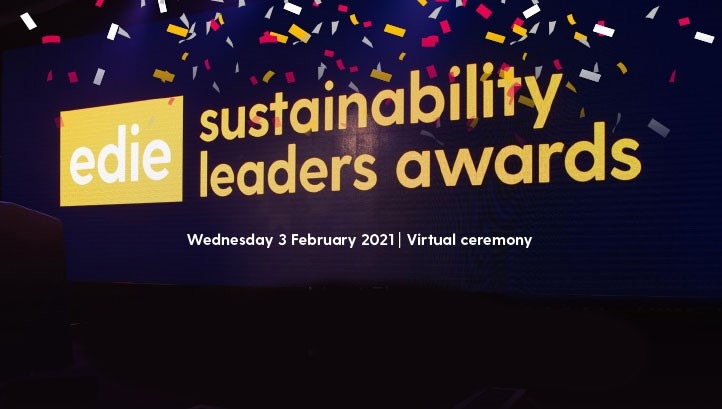

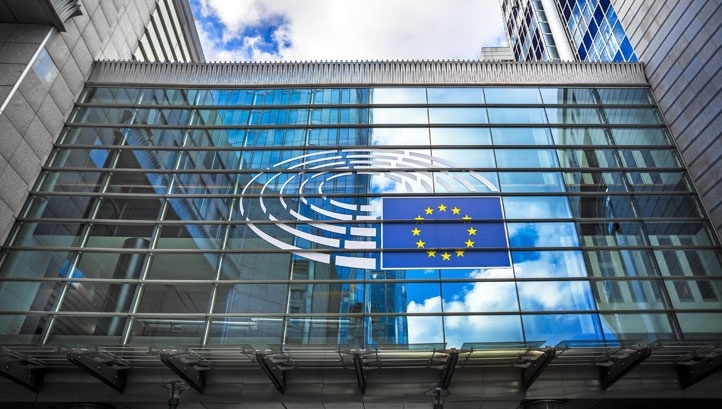


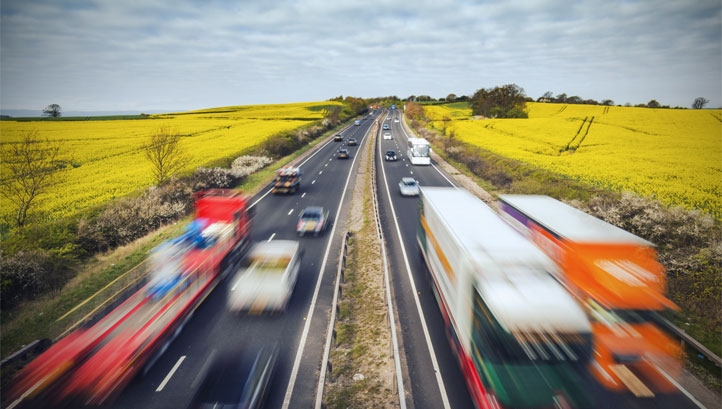

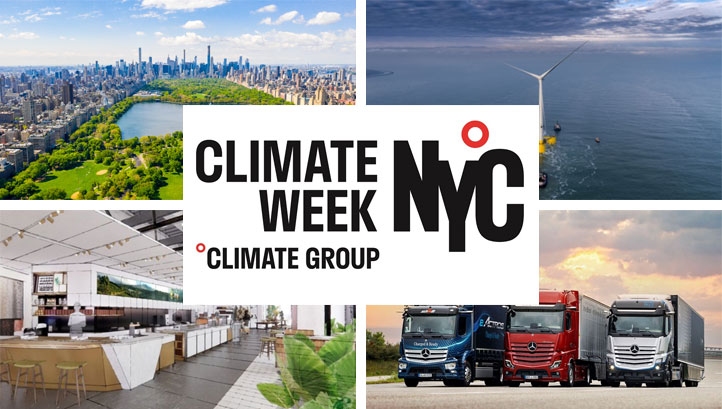


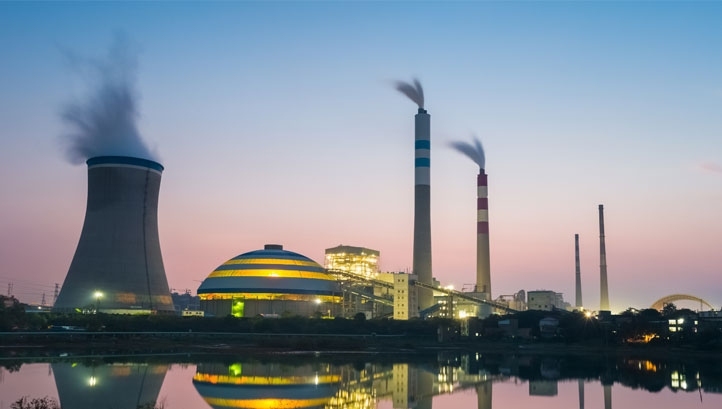


Please login or Register to leave a comment.